Owning Your Own Professional Development
The golden days of the company escorting you from point a to point b and guiding you along your career path are long gone. In today’s business world, you are in charge of your own professional development. This change isn’t necessarily bad. For many of us, the path the company chose for us and the path we would have chosen may be very different. However with the upswing of freedom comes the downswing of responsibility.
When we had our paths laid out for us by our HR departments and companies, there was little question about what to do next or how we would achieve career advancement. With the switch to employee-driven plans, individuals often report feeling lost as they seek what the next step may be, let alone how to get there.
Regularly I meet with people who tell me, “I’m restless in my work, but I’m not sure what I want to do with the next 10 years.” This uncertainty has opened opportunities for life coaching, books on mission and purpose (remember What Color is Your Parachute?), and a plethora of people seeking self-knowledge.
I’m in favor of knowing yourself and figuring out what values drive you and thinking about how do I live out my passion. The part that’s harder for most of us is figuring out how do I do this and all the other things I do. It feels like learning more about me and where I want to go is a full-time job, and I’m supposed to be doing that plus be a mom/dad, child, friend, volunteer, adventure-seeking enthusiast and Zen master.
It’s this compounding of life stage and self-driven professional development that ultimately paralyzes people into doing nothing instead of inspiring them to dream. What are some practical things we can do to explore the first steps to new paths in realistic ways?
1. Seek input. Simply because you own your professional development, doesn’t mean your boss or company doesn’t have input to offer about your role and potential in the company. In the new world of professional development, you may need to seek out the feedback, but the feedback is there if you ask for it. Ask folks you work with:
a. What am I really good at?
b. What am I talking about or doing when my eyes light up with excitement?
c. What types of opportunities do you opening up in the company that may match my passion and the company’s needs?
2. If you feel as if the organization you work for has few or limited professional development options, ask:
a. Where can you go to learn those skills?
b. Does your community college offer non-credit learning?
c. Is there an online resource or community who can help you?
d. Is there an association of folks in that field who can help you through monthly meetings or relationships?
For those of you struggling because your life stage holds some challenges, think about the longer-term picture. For the moment, I’m at capacity at both home and work, but in two years that will change when Eleanor goes to kindergarten. What could be different then and what little things can I do now to prepare for that day? The time will go by whether you do something or not, so what can you realistically do now to prepare for then.
Sometimes the exploration of combining passion and skills clearly leads to the next steps to take. Other times, we struggle to even figure out our passion. No matter where you are in that process, it’s exactly that – a process. Some processes you can hurry or skip steps, others you have to take slowly and carefully. The important thing is you are moving forward somehow.
The old adage is: “How to you eat an elephant? One bite at a time.” What’s your next bite going to be as you own your own professional development?
Keynote speaker, trainer, and consultant, Sarah Gibson, helps organizations leverage the power of communication, teamwork and diversity to improve engagement and transform teams. To buy her book or inquire about her speaking programs, please visit www.sarahjgibson.com.



